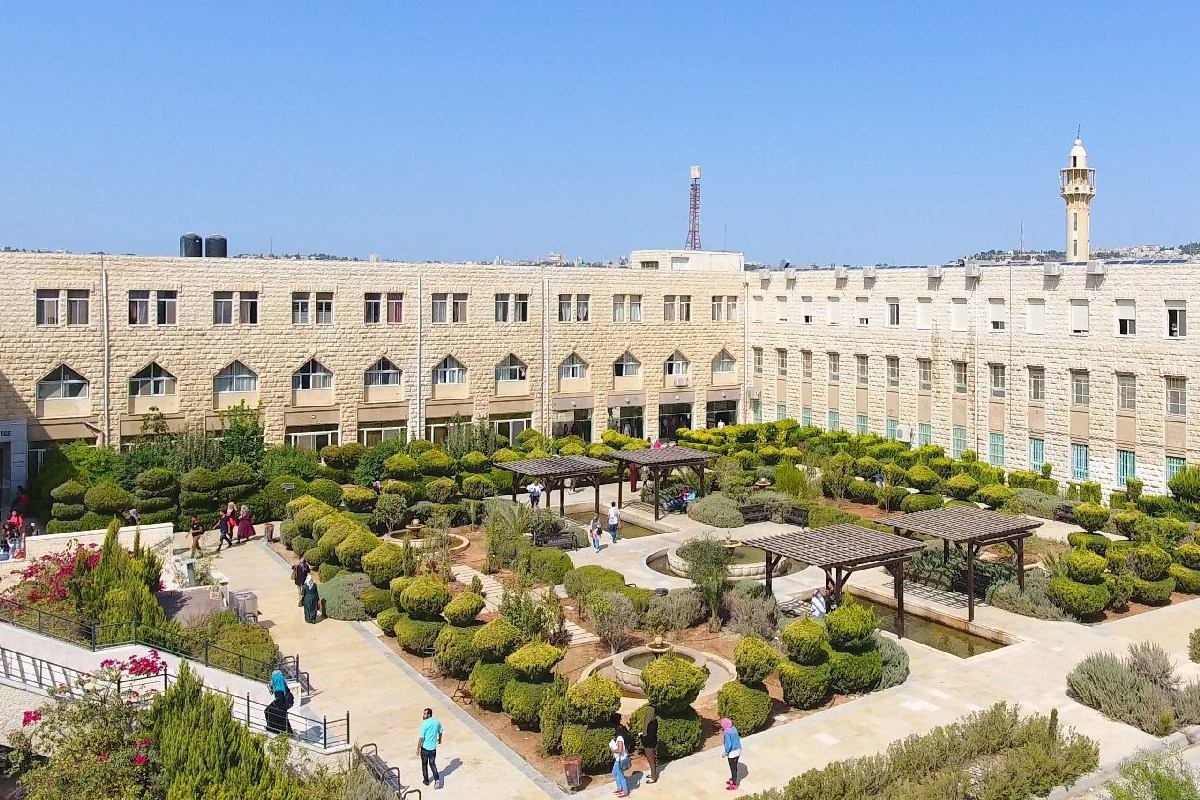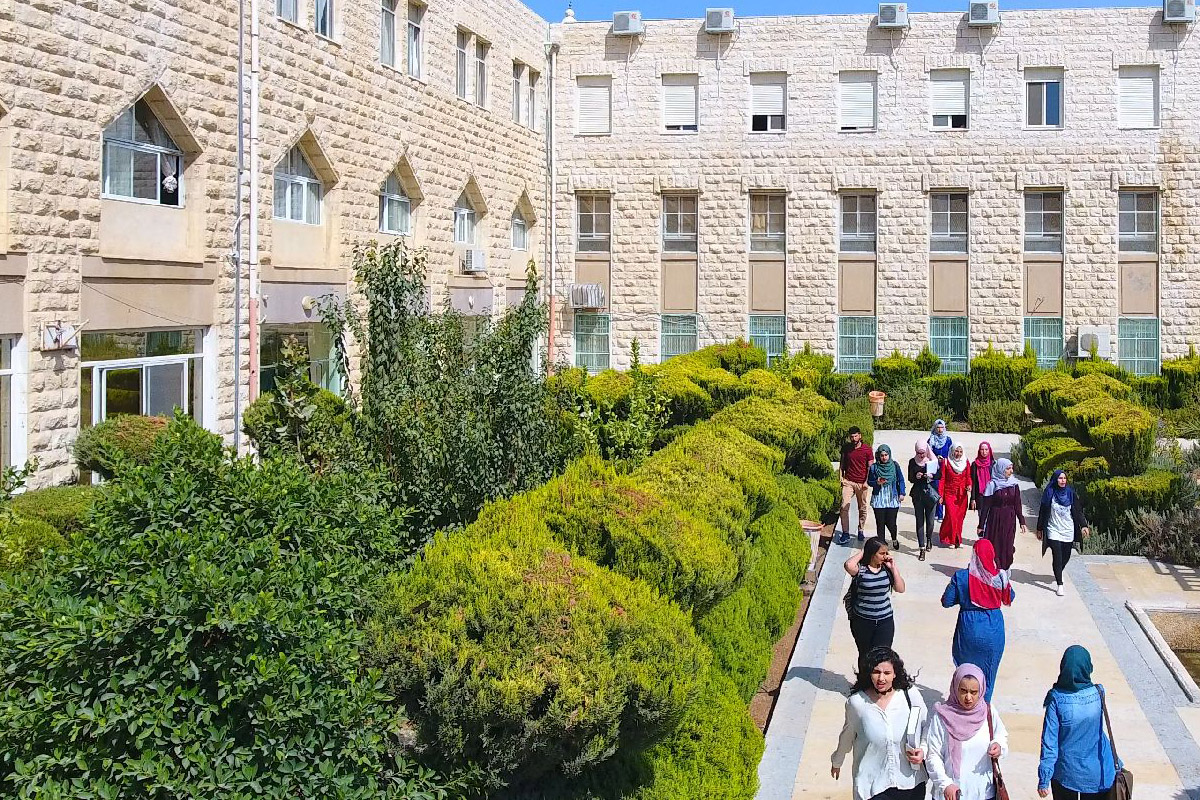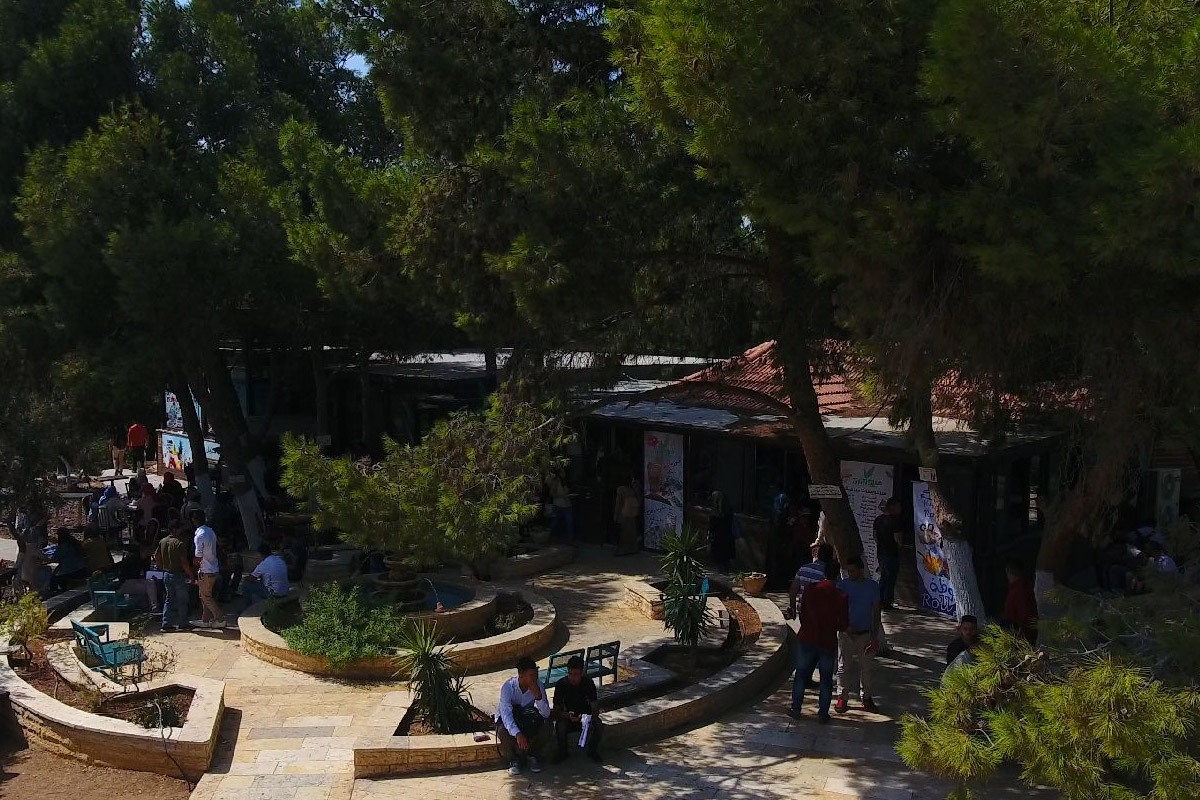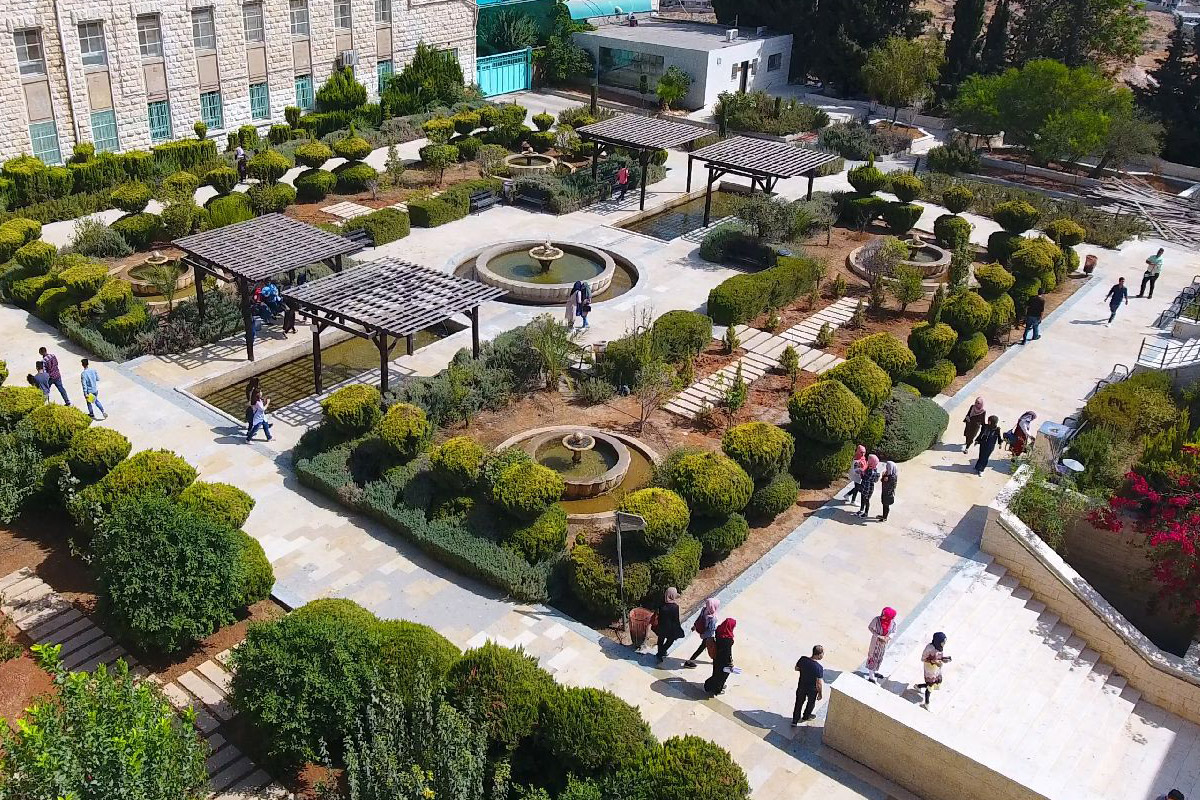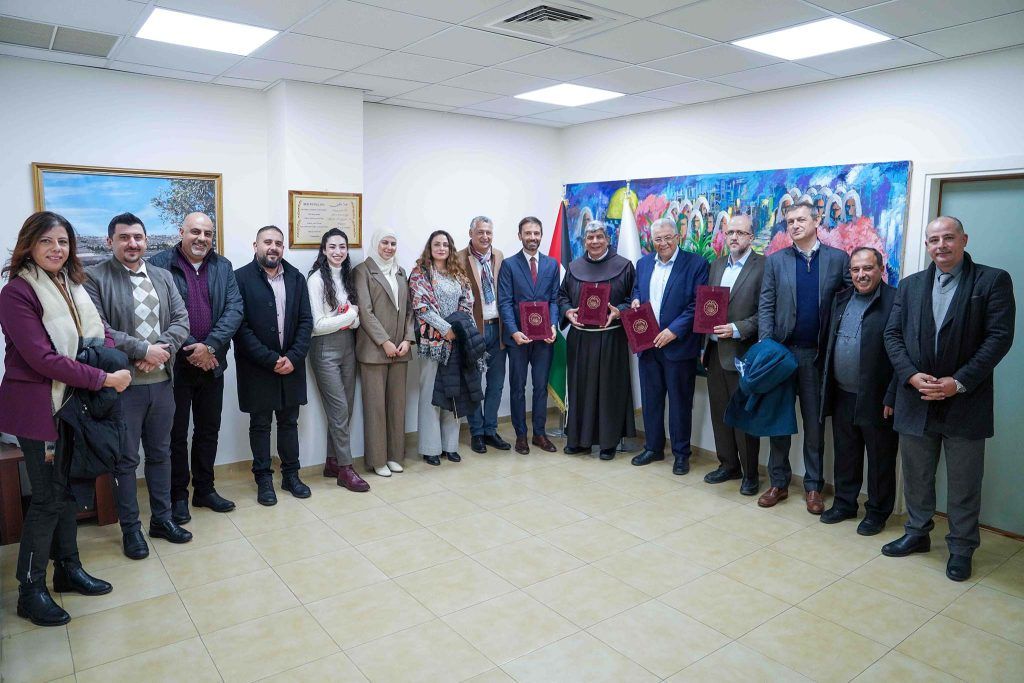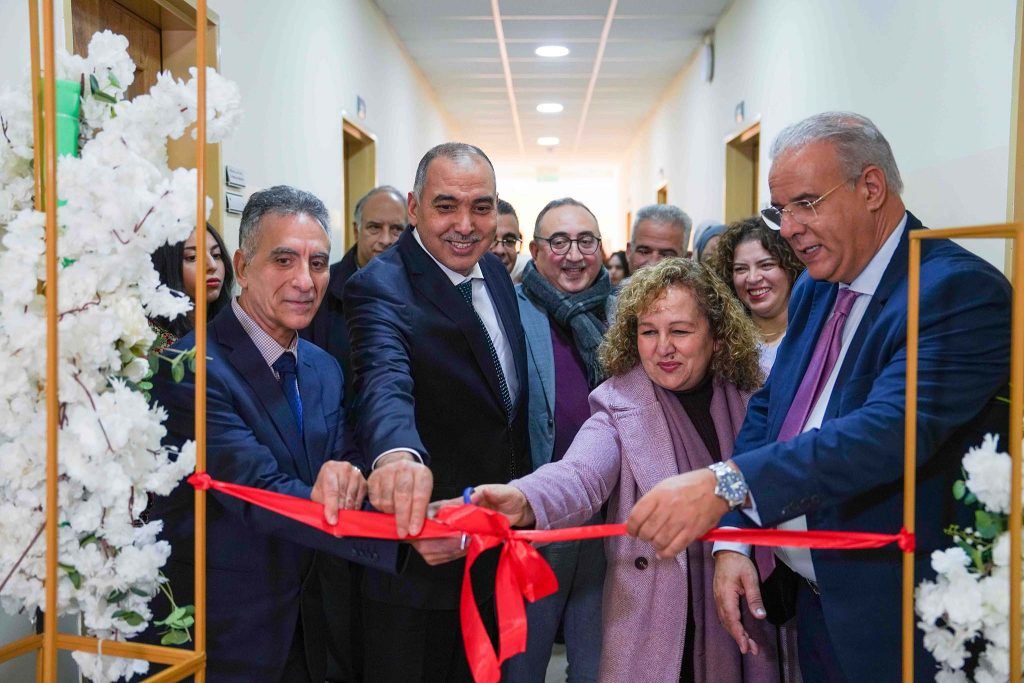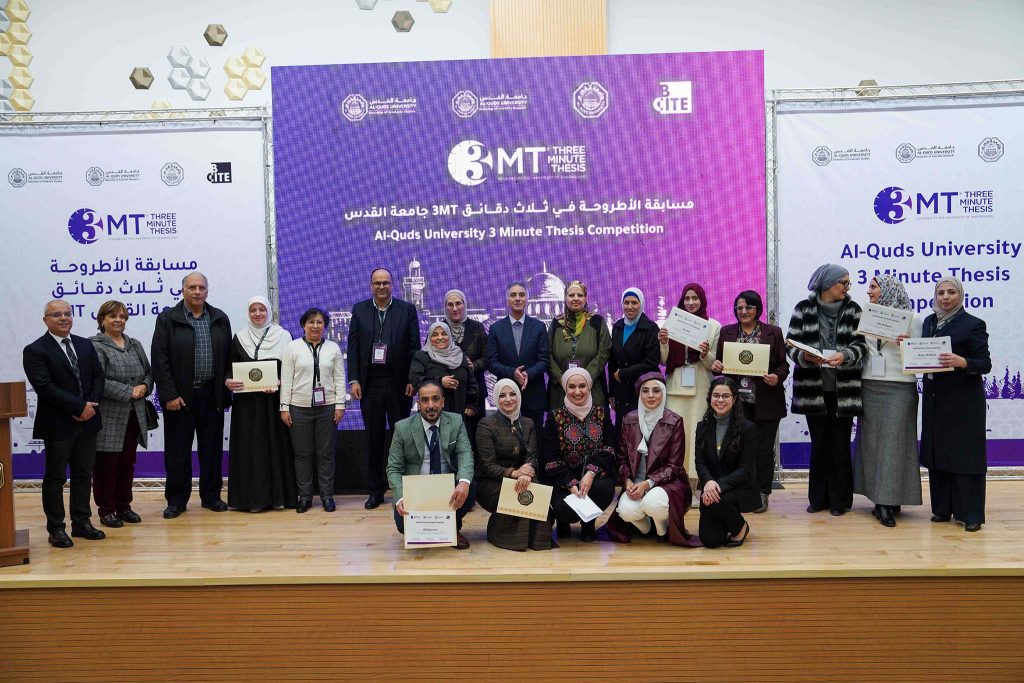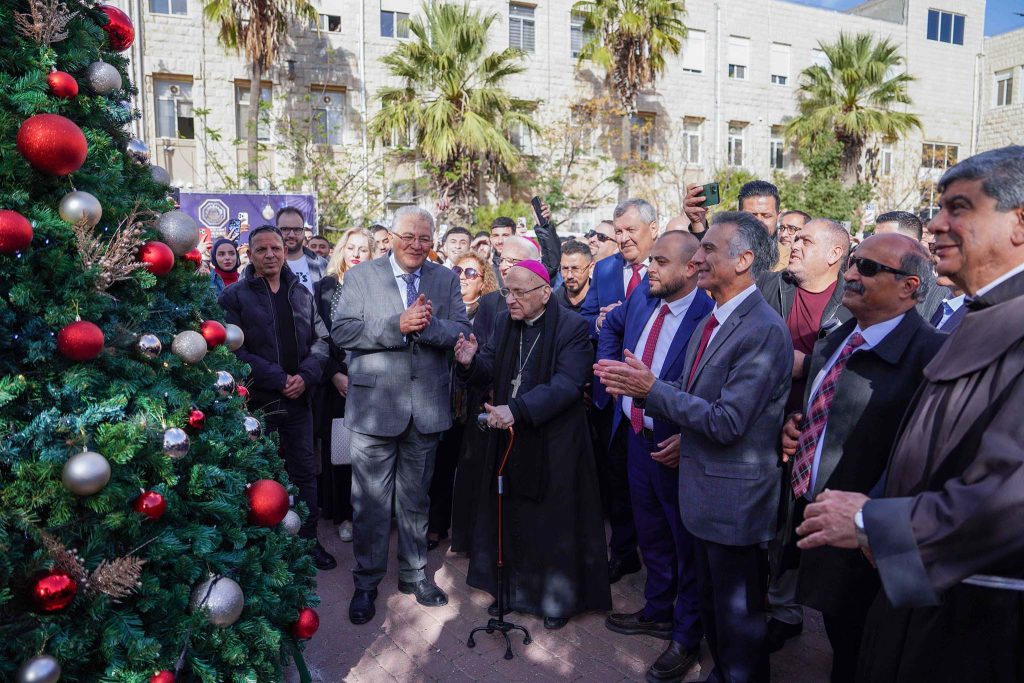Faculty of Pharmacy
The Faculty of Pharmacy was founded in 2002. It is one of the faculties of the Health Complex at Al-Quds University in Abu-Dies campus
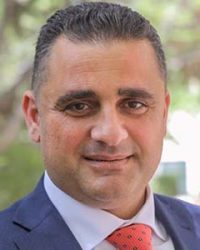
Prof. Dr. Ahmad Amro
Dean of the Faculty of Pharmacy
It is my pleasure to welcome you to the website of the Faculty of Pharmacy at Al-Quds University. Through its mission, Al Quds University seeks to provide a unique academic and research environment based on stimulating and encouraging critical thinking and scientific research by providing programs aimed at enriching knowledge and meeting the needs of the Palestinian society.
It is my pleasure to welcome you to the website of the Faculty of Pharmacy at Al-Quds University. Through its mission, Al Quds University seeks to provide a unique academic and research environment based on stimulating and encouraging critical thinking and scientific research by providing programs aimed at enriching knowledge and meeting the needs of the Palestinian society.
As part of this distinguished university mission, the mission of the Faculty of Pharmacy is to educate students to provide pharmaceutical care, to promote research and scholarly activities in the pharmaceutical sciences, and to serve as a pharmacy resource for the Palestinian society and others around the world.
In 2002, the Faculty of Pharmacy was founded as one of the faculties of the university’s health complex. Since then, the faculty has been in many stages of development and has achieved consecutive successes at all levels. It has established a postgraduate program, three research laboratories and many research groups that have carried out dozens of research projects and published hundreds of scientific research papers in various pharmaceutical fields. Moreover, our graduates have been a key player in building the pharmaceutical system in Palestine and have distinguished contributions in all fields of pharmacy. Recently, the graduates of our faculty gained recognition for practicing pharmacy in the Palestinian areas of (1948).
Our faculty is dedicated to achieving excellence in an environment of interdisciplinary co-operation, and mutual respect, consistent with the mission of the University and with the mission of the profession of Pharmacy.
If you want to enter the pharmacy profession, the Faculty of Pharmacy at Al Quds University is welcoming you.
Dr. rer. med. Ahmad Amro
Dean of the Faculty of Pharmacy
Faculty of Pharmacy
The Faculty of Pharmacy was founded in 2002. It is one of the faculties of the Health Complex at Al-Quds University in Abu-Dies campus which includes Faculty of Medicine, Dentistry, Public Health, and Health Professions. We offer a bachelor’s degree in pharmacy (B.Pharm) which develops a comprehensive understanding of how drugs are developed and medications affect the human body.
Moreover, we offer a master’s degree in pharmaceutical sciences (MSc) which focusses on pharmaceutical researches through its only-thesis track. Currently, more than 640 students are matriculated in our faculty, of which 30 are in the Master’s Program.
Since its foundation, our faculty has provided the Palestinian and international labor market with hundreds of pharmacists who have contributed distinctly in various fields, especially in the field of scientific research, drug development, improving the quality of pharmaceutical services, and many graduates who have received scholarships and completed their postgraduate studies. Furthermore, the graduates of our faculty achieve the highest success rates in the professional exams in Palestine and in the 1948 areas to becoming a registered pharmacist and playing a vital and rewarding role in healthcare provision.
The Faculty has a distinguished cadre of full, associate and assistant professors with distinguished research and professional contributions and patents in various fields of pharmacy. It also includes many competent lecturers, research and teaching assistants, and laboratory technicians.
We work in cooperation with many Palestinian pharmaceutical companies and institutions in order to improve the industry and to improve the quality of the pharmaceutical service respectively.
The Faculty has also partnerships with many European universities so that our students from their second year can take advantage of the student exchange programs and visit these universities for a period ranging from one week to one semester.
Staff Members
Academic Staff
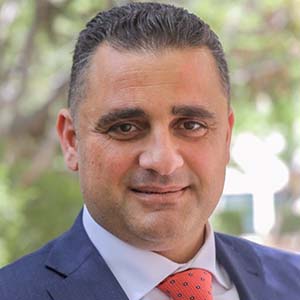
Prof. Dr. Ahmad Amro has been serving as a professor of molecular microbiology and Epidemiology in the Faculty of Pharmacy since 2009. Presently, he holds the position of Dean within the Faculty, demonstrating his extensive experience and leadership in academia.
Prof. Dr. Amro received his B.Sc. in Pharmacy from Al-Azhar University (2001) and his M. Sc.; MPH from Alquds University (2004). In 2006, Prof. Dr. Amro was awarded PhD scholarship from the German Academic exchange service DAAD and in 2009 he finished his PhD from the Charite University of Medicine, Berlin, Germany with highest recognition.
His research interests include molecular diagnosis and investigation of genetic structure and gene diversity of the parasite Leishmania infantum in the Middle East, North Affric and South Europe by using multilocus microsatellite typing approach. His research focus extended to extraction, characterization and screening of antimicrobial activity of Palestinian medicinal plants against Leishmania parasites, Chlamydia trachomatis, Malaria and Toxoplasma.
During his career, he published more than 35 international peer-reviwed articles and authored a university level book in Epidemiology which considered the first epidemiology university text book in Arabic language. Moreover, he published more than ten book chapters in his field.
Prof. Dr. Amro has many collaborators from Palestinian, Arab, and European research institutions especially from Germany. Currently he is the DAAD ambassador at Al-Quds University and member at the Arab German Young Academy for Science and Humanities in Berlin AGYA.
Prof. Dr. Amro is an editorial board member in many international peer-reviewed journals and has been invited several times as a referee and reviewer by many international peer-reviewed journals.
Selected 5 publications:
- Spatiotemporal and molecular epidemiology of cutaneous leishmaniasis in Libya. PLoS neglected tropical diseases 11 (9), e0005873. 2017
- Population genetics analysis of Phlebotomus papatasi sand flies from Egypt and Jordan based on mitochondrial cytochrome b haplotypes. Parasites & vectors 11 (1), 214. 2018
- Development of polymorphic EST microsatellite markers for the sand fly, Phlebotomus papatasi (Diptera: Psychodidae). Parasites & vectors 11 (1), 160. 2018
- Antileishmanial Potential of Crude Plant Extracts Derived from Medicinal Plants in Palestine. Ann Clin Cytol Pathol 3 (4), 1065. 2018
- Knowledge and adherence to medications among Palestinian geriatrics living with chronic diseases in the West Bank and East Jerusalem. PLoS One. DOI: 10.1371/journal.pone.0129240. 2016
Job Title: Dean of the Faculty of Pharmacy
Address: Al-Quds University, Faculty of Pharmacy
P.O.Box 20002, Abu Dies/ Jerusalem
Tel: 00972599205307
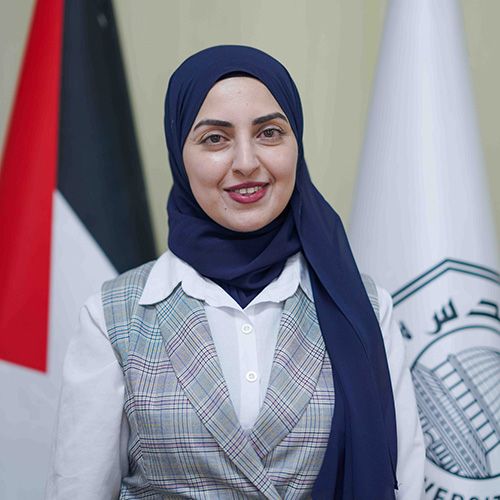
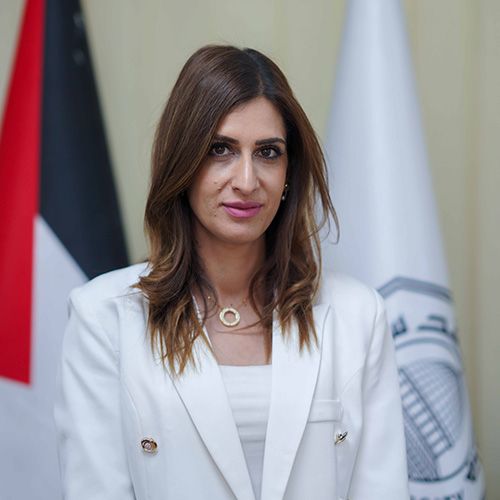
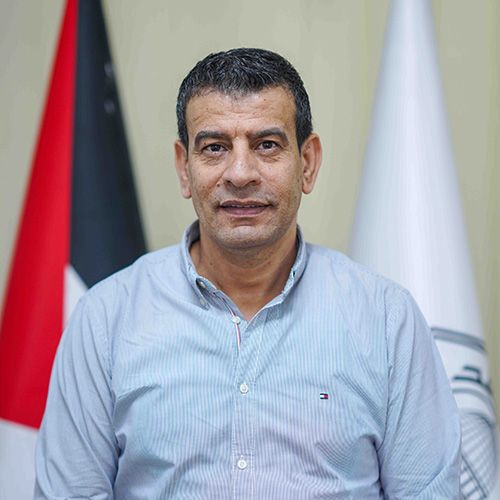
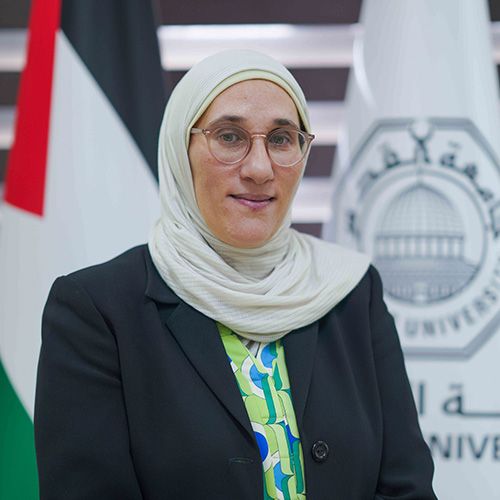
Dr. Maisa NABULSI is an assistant professor of Physiology and Therapeutics in the Faculty of Pharmacy since 2016.
Dr. Nabulsi obtained her B.Sc. in Pharmacy from An-Najah University (2002) and her M.Sc. in Pharmaceutical Sciences from Jordan University (2006). In 2012, Dr. Nabulsi was awarded PhD scholarship from Al-Quds university in partnership with the French government and in 2016 obtained her second master degree and her PhD from Paris 6 university, Sorbonnes universities, Paris, France with highest recognition.
Her research interests in the role of environmental and toxic agents on Cholesterol Homeostasis. Other areas include patients adherence to available and new antihyperlipidemic agents.
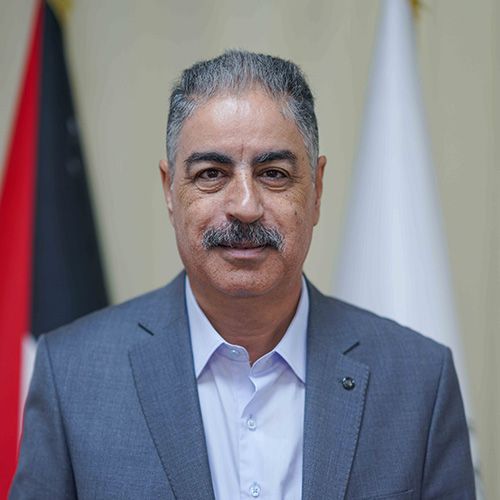
Prof. Omar Deeb is a full professor of pharmaceutical chemistry and drug design in the Faculty of Pharmacy.
Prof. Deeb received his B.Sc. in Chemistry from Birzeit University (1983) and his M. Sc., in Analytical Chemistry from the Hebrew University of Jerusalem (1987). Dr. Deeb finished his PhD from the Hebrew University of Jerusalem in computational pharmaceutical chemistry.
His research interests include Quantitative structure activity relationship (QSAR) of active pharmaceutical compounds. Drug – receptor interactions. Characterization of the conformational preferences of small compounds (inhibitors). Computer modeling of the different conformations of small compounds. Hydrogen bonding interactions and proton transfers.
Electronic structure calculations using Ab initio as well as DFT method.
During his career, he published more than 60 international peer-reviewed articles. Moreover, he published many book chapters in his field.
Prof. Deeb has many collaborators from all over the word such as Germany, Mexico, India, Brazil, Belgium, Austia, USA and others.
Dr. Deeb invited all the time to serve as a referee and reviewer by many international peer-reviewed journals.
Selected 6 publications:
1) Deeb O. and Goodarzi M., (2015), Chapter 6 “QSAR of Antioxidants” book “Quantitative Structure-Activity Relationships in Drug Design, Predictive Toxicology, and Risk Assessment”. Prof. Kunal Roy (Ed). IGI Golbal publishers. pp 212-237.
2) Montañez-Godínez N., Martínez-Olguín A., Deeb O., Garduño-Juárez R., Ramírez-Galicia G. (2015), Chapter 19, “QSAR/QSPR as an application of Artificial Neural Networks” book “Artificial Neural Networks: Methods and Applications” as part of the “Methods in Molecular Biology” series. Prof. Hugh Cartwrigh (Ed). Springer publishers. 1260, 319-333.
3) Deeb O., Martínez-Pachecho H., Ramírez-Galicia G. and Garduño-Juárez R. (2016), Chapter 2, Title:” Application of Docking Methodologies in QSAR Based Studies” book “Applied Case Studies and Solutions in Molecular Docking-Based Drug Design “.Prof. Siavoush Dastmalchi (Ed). IGI Golbal publishers. pp29-55
4) Basheerulla Shaik, Omar Deeb, Vijay K Agrawal and Satya P. Gupta (2017), “QSAR and Molecular Docking Studies on a Series of Cinnamic Acid Analogues as Epidermal Growth Factor Receptor (EGFR) Inhibitors”. Letters in Drug Design & Discovery, 14(1), 83-95
5) Martínez-Archundia M, Moreno-Vargas LM, Ramírez-Galicia G, Garduño-Juárez R, Deeb O, Colín-Astudillo B, Contreras-Romo MC, Quintanar-Stephano A, Abarca-Rojano E, Correa-Basurto J. (2017), “Ligand recognition properties of the vasopressin V2 receptor studied under QSAR and molecular modeling strategies”. Chemical Biology and Drug Design, 90(5), 840-853.
6) Omar Deeb, Guillermo Ramírez-Galicia, Ramón Garduño-Juárez, José Correa-Basurto (2018), “Determination of Human Serum Albumin Flexibility by Docking, Molecular Dynamics and QSAR simulations”. Current Chemical Biology, (accepted).
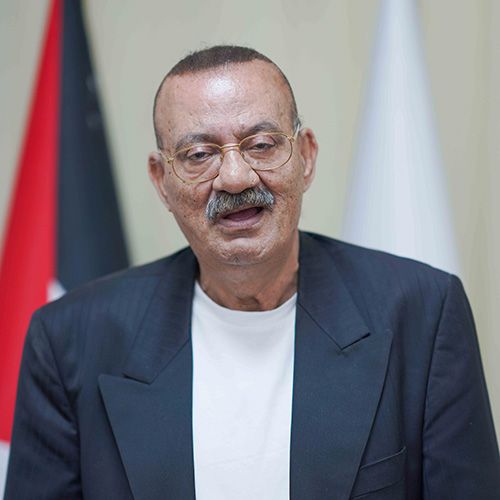
Professor Rafik Karaman is currently a distinguished professor of pharmaceutical sciences, College of Pharmacy, Al-Quds University, Jerusalem, Palestine and adjunct professor at Basilicata University, Italy. He received his Ph.D. MS and bachelor degree in Pharmacy from the Hebrew University. He was an Assistant Professor at the University of Toledo and University of California for 5 years where he worked with Professor T.C. Bruice in the bioorganic chemistry field. Professor Karaman is broadly interested in the design and synthesis of prodrug systems to be used for the delivery of certain drugs that have poor water solubility or/and have low bioavailability as well as synthesis of prodrugs for masking the bitter sensation of commonly used drugs. The prodrug design is executed using ab initio, DFT, semiempirical, molecular mechanics as well as molecular dynamics and conformational dynamics methods. The overarching goal of Karaman’s research activities is to establish a method for obtaining prodrugs that their interconversion rates will be controlled or programmed by the chemical features of the linker (promoiety) attached to their active parent drugs. Professor Karaman has more than 180 peer-reviewed manuscripts and book chapters; 140 of them were published in the recent 9 years. He is currently an editor and an editorial board member of more than 50 international journals in the areas of pharmaceutical sciences.
Specialization areas:
Prodrugs, Prodrugs Design, Drug Discovery, Drug Design, Computational Methods, DFT Calculations, Synthesis of Organic Compounds, Reactions Mechanisms.
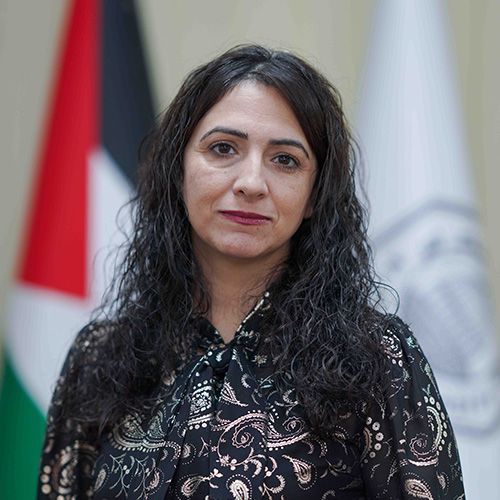
Mrs Rania Ghanem had joined faculty of pharmacy since 2005. Mrs. Ghanem had received her BSc degree in pharmacy from An-Najah National University in January 2004. In spring 2004 she has awarded the Chevening scholarship from British council to complete her MSc in Drug Delivery from School of Pharmacy University of London in 2005 with distinction. Between 2013- 2015 Mrs Ghanem had joined Institute of Al-Quds Nutrition and Health Research as a researcher in the field of treating Leishmaniosis disease.
Meanwhile Mrs Ghanem is writing the thesis for her second MSc in clinical pharmacy from An-Najah National University.
Mrs Ghanem is the program coordinator at the faculty of pharmacy for many years.
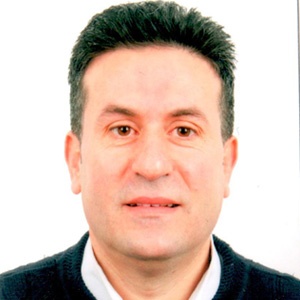
Prof. Saleh Abu Lafi is specialized in the separation and identification of new active ingredients from natural products. He received his bachelor’s and master’s degree from Yarmouk University, Jordan in 1987. In 1994, he received his doctorate from the School of Pharmacy, The Hebrew University of Jerusalem and spent three years as a visiting associate at the United States-Food and Drug Administration (FDA) until 1997.
His research interests are in the separation and identification of new active ingredients from medicinal plant materials using advanced instruments such as LCMS, LC-MSMS, NMR, HPLC-PDA, HS-SPME-GCMS. He is also interested in the development of new methods related to the separation and analysis of medicines according to FDA and ICH norms. Another field of interest is chiral and preparative (scaling up) separation of drugs. During his career, he published over 75 peer reviewed articles.
Selected 5 publications from 2018:
1. A New Approach for Indexing Honey for Its Heath/Medicinal Benefits: Visualization of the Concept by Indexing Based on Antioxidant and Antibacterial Activities, Medicines, 5, 135; doi:10.3390/medicines5040135, 2018.
2. Sesamin from Cuscuta palaestina natural plant extracts: Directions for new prospective applications, PLOS ONE, https://doi.org/10.1371/journal.pone.0195707, 2018.
3. Anticancer activity and phytochemical composition of wild Gundelia tournefortii, Oncology Letters, Pages: 713-717 DOI: 10.3892/ol.2018.9602, 2018.
4. Pure isolates and preparative HPLC fractions or crude extract of Inula viscosa: Effect on β-hematin inhibition in vitro, Pharm Pharmacol Int J, 6(1): 00145, 2018.
5. HPLC separation of phenolic phytochemicals from grape peels and seeds water extracts and their in-vitro antimalarial activities, Pharm Pharmacol Int J., 6(4):210-216, 2018.
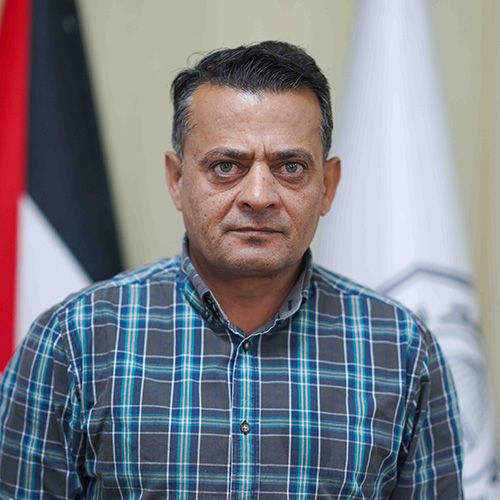
since2014. Salih Al-jabour received his B.Sc. in chemistry/math from Bethlehem University, and M.Sc. degree in scientific computing and bioinformatics from Birzeit University. Dr.
Salih Al-Jabour awarded PhD scholarship from DFG organization and he finished his PhD from Freie Universitat /Berlin in theoretical chemistry.
Dr. Salih has many articles published in scientific journal with high impact factor.
His research interests include:
- Conical intersections in polyatomic molecules: quantum chemistry, molecular symmetry, quantum dynamics, and quantum control.
- Protein dynamics and modelling.
- Drug design.
Selected articles:
M. Hamed, S. Al-Jabour, Iron (II) triggered conformational changes in Escherichia Coli fur upon DNA binding: a study using molecular modeling. J. Mol. Graph Model., Vol. 25, pp. 234-246, (2006).
S. Al-Jabour, M. Hamed, Binding of the Zn2+ ion to ferric uptake regulation protein from E.coli and the competition with Fe2+ binding: a molecular modeling study of the effect on conformational changes of Fur. In J. comp. aided Mol. design, Vol. 23 pp. 199-208, (2009).
S. Al-Jabour, M. Baer, O. Deeb, M. Leibscher, J. Manz, X. Xu, and S. Zilberg, Molecular Symmetry Properties of Conical Intersections and Nonadiabatic Coupling Terms:Theory and Quantum Chemical Demonstration for Cyclopenta-2,4-dienimine (C5H4NH). J. Phys. Chem A., Vol. 114, pp. 2991-3010, (2010).
S. Al-Jabour, M. Leibscher, Effects of Molecular Symmetry on Quantum Reaction Dynamics Novel Aspects of Photoinduced Nonadiabatic Dynamics. J. Phys. Chem. A, 2015, 119 (2), pp 271–280.
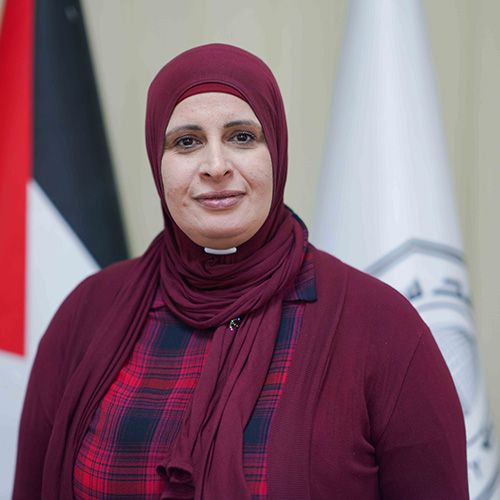
Dr. Sawsan Salameh, born in Jerusalem, living in Ramallah of Ramallah. She holds a bachelor’s degree and a master’s degree in chemistry from Al-Quds University and a doctorate in medical chemistry from the Hebrew University of Jerusalem. Her research interests include researchs in synthesis of many Platinum(IV) anticancer prodrugs and study in vitro interaction with many cancer cell lines like colon and breast cancer cells and follow the kinetic reaction by using NMR spectroscopy.
She joined the Faculty of Pharmacy in 2014 as a faculty member and worked at the university before in projects and research since 2009. She has many community activities since she was the head of the administrative board of the Sabaya Center of the since 2005 and an elected member of Anata municipality for two consecutive sessions. One member in Advisory Committee for the United Nations Women’s Organization in the West Bank (UN WOMEN)
Dr.Salameh has many bublications and lectured in international conferences and has many bublications in international joiurnals
Selected 5 bublications
On the Stability of PtIV Pro-Drugs with Haloacetato Ligands in the Axial Positions
On the hydrolysis of Pt(IV) pro-drugs with haloacetato ligands in the axial positions
Novel Acylethanolamide Derivatives That Modulate Body Weight through Enhancement of Hypothalamic Pro-Opiomelanocortin (POMC) and/or Decreased Neuropeptide Y (NPY)
A Nonanuclear NiII Cluster with a 1,2,4-Triazolo[4,3-a]pyrimidine Derivative
1,2,4-triazolo[4,3-a]pyrimidines: A new kind of ligands. Structure of the silver(I) dimer with the 7-oxo derivative
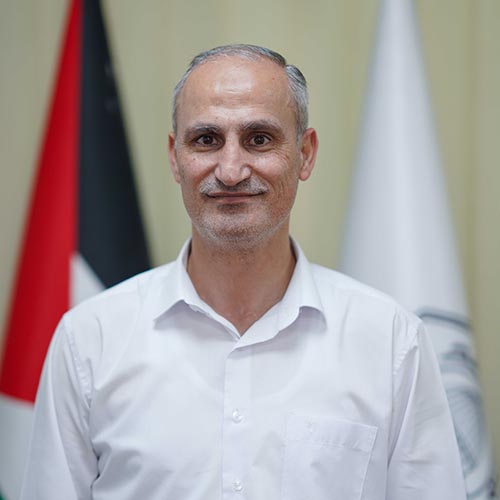
Administrative Staff
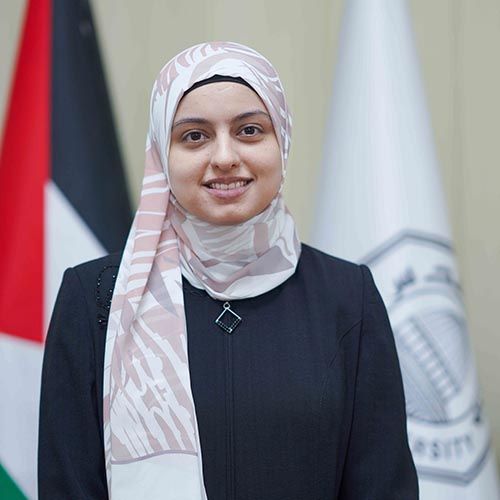
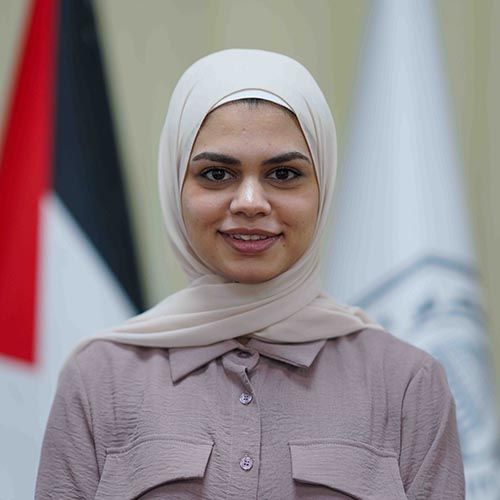
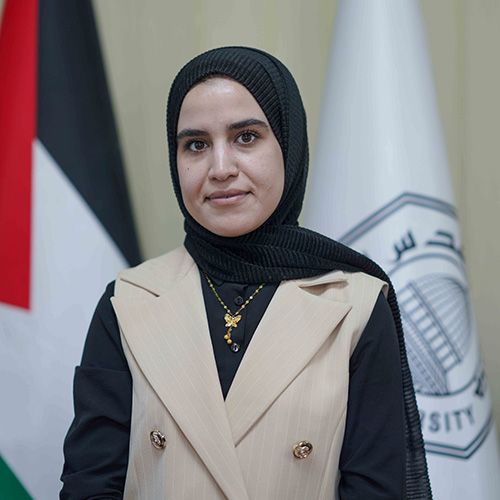
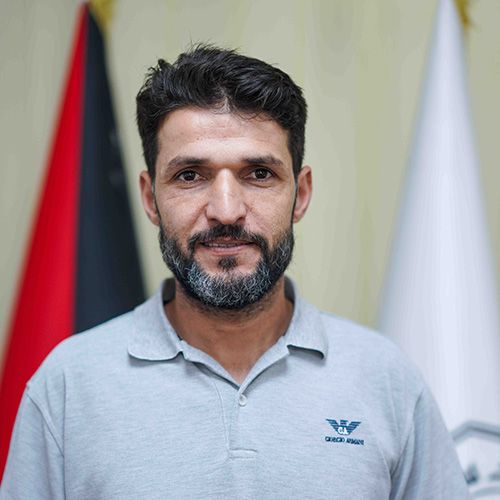
Degree: Master in Applied and Industrial Chemistry
Address: Office No. 008, Faculty of Pharmacy
Laboratory: Instrumental and pharmacopoeial analysis lab, Organic chemistry
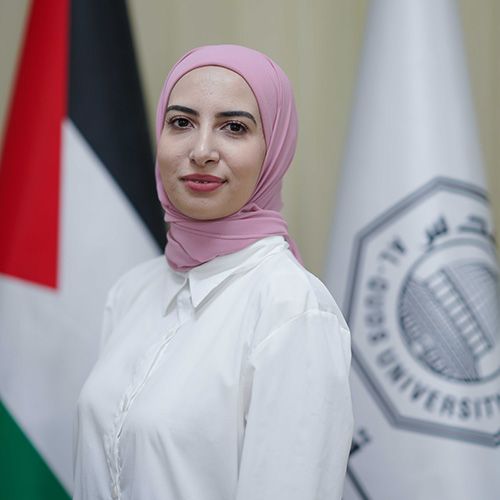
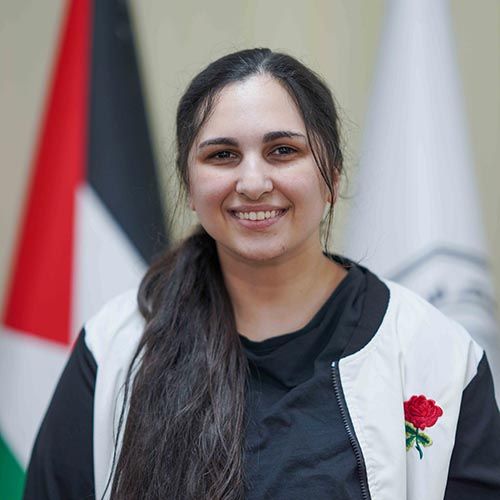
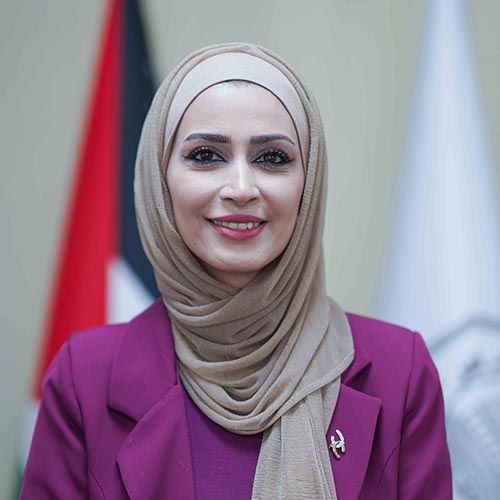
Degree: Bachelor of Chemistry
Address: Office No. 015, Faculty of Pharmacy
Laboratory: General Chemistry Lab, analytical chemistry Lab
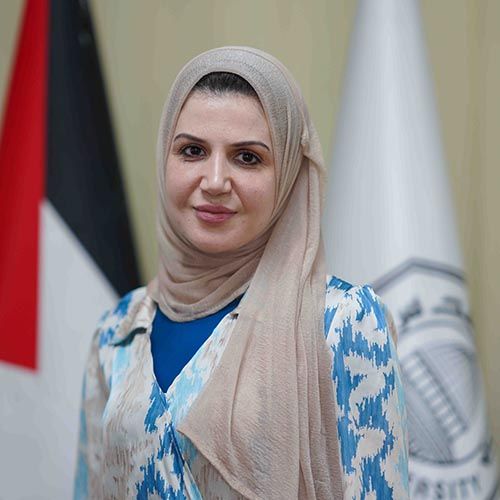
Degree: Bachelor of Pharmacy
Address: Office No. 015, Faculty of Pharmacy
Laboratory: Pharmaceutical and Industrial Pharmacy Lab
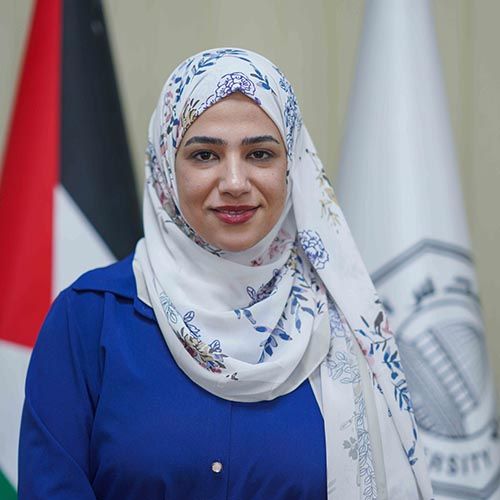
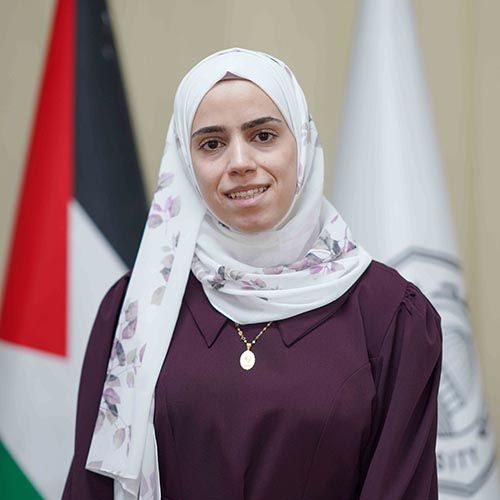
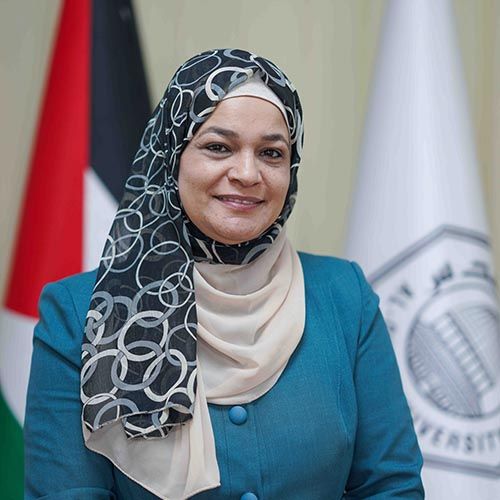
Degree: Master in Analytical Chemistry
Address: Office No. 111, Faculty of Pharmacy
Laboratory: General Chemistry Lab, Organic Pharmacy Lab
Featured News
 December 29, 2025
December 29, 2025
 December 29, 2025
December 29, 2025
 December 21, 2025
December 21, 2025
 December 20, 2025
December 20, 2025
 December 9, 2025
December 9, 2025
 December 8, 2025
December 8, 2025





